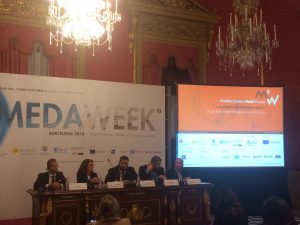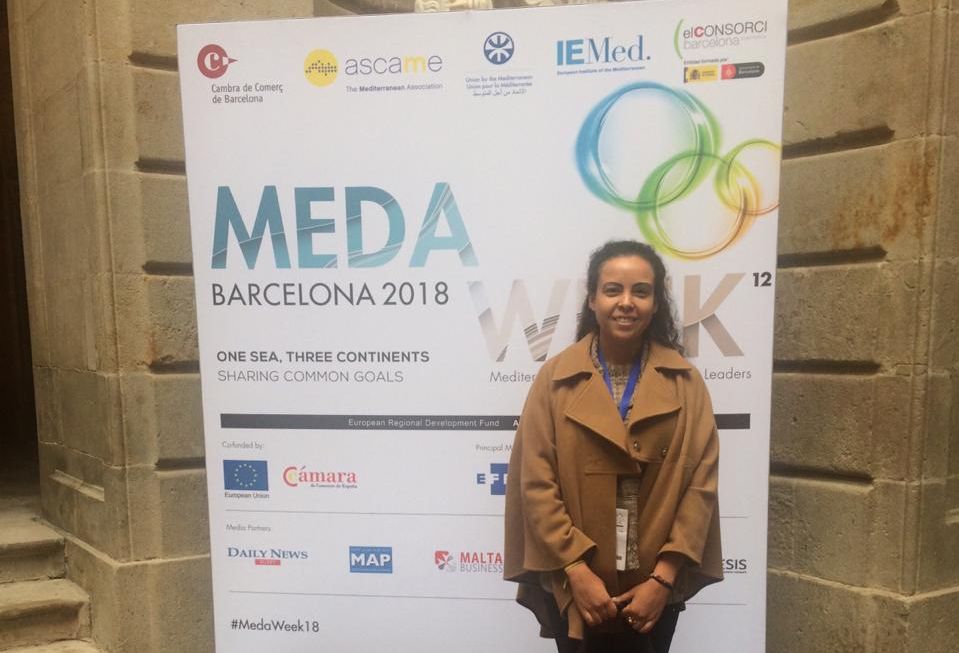São Paulo – Mediterranean countries are willing to partner up in order to incorporate innovation and technology into their economies. This was one of the topics dealt with in the 12th Mediterranean Week of Economic Leaders (MedaWeek), which ran from Wednesday (21) to Friday (23) in Barcelona, Spain. Arab Brazilian Chamber of Commerce international business executive Fernanda Baltazar (pictured above) and president Rubens Hannun were in attendance.
During the event’s opening, on behalf of the Chamber, Hannun signed a memorandum of understanding with one of MedaWeek’s organizers, the Association of the Mediterranean Chambers of Commerce and Industry (ASCAME). Baltazar told ANBA this Friday that lectures and panels on innovation and halal took place respectively on Thursday (22) and Friday.

She said speakers called for interchange between Mediterranean countries in Africa, the Middle East and Europe, which they said are complementary to one another in several aspects. “Europe must diversify its economy and it needs young people for their labor force, whereas the Mediterranean countries in Africa and the Middle East need to grow,” Baltazar said.
Also in discussion was the so-called ‘blue economy’ – a sustainability-oriented development model based around ocean-related activities. The MedaWeek covered sustainable fishing; coastal tourism; the benefits of economic activities to communities that rely on the ocean for their livelihoods; seaports, etc. The use of technology and innovation in those fields was also brought up.
Regarding halal, speakers stressed the need for standardization, talks for which have been ongoing in major halal-consuming countries. Halal goods and services are those that comply with Islamic rules. According to Baltazar, another widely covered halal-related topic was tourism. Spain is working to attract Muslim tourists by providing halal services.
As per what was said in Barcelona, halal tourism isn’t about simply offering tourists halal food and alcohol-free sites; it also involves prayer spaces, spas and especially supplying a comfortable setting for those who abide by halal precepts. One suggestion was for hotels and tourist spots to include family- and women-only areas and even private pools. It was said at the event that the halal industry will be worth USD 283 billion by 2022.
Baltazar said it is important for the Arab Chamber to join events like MedaWeek. “We have been looking to Arab countries a lot, and here we are getting a global perspective,” she argued. Witnessing the close ties which Arab Mediterranean countries sustain with European countries is important, according to her, in order to understand their concerns and their markets, and to find out how Brazil can play a part in this. The Arab Chamber executive believes this can be further explored in the wake of the newly-signed Chamber-ASCAME agreement. The MoU provides for the sharing of information and tandem actions designed to foster trade.
Translated by Gabriel Pomerancblum




